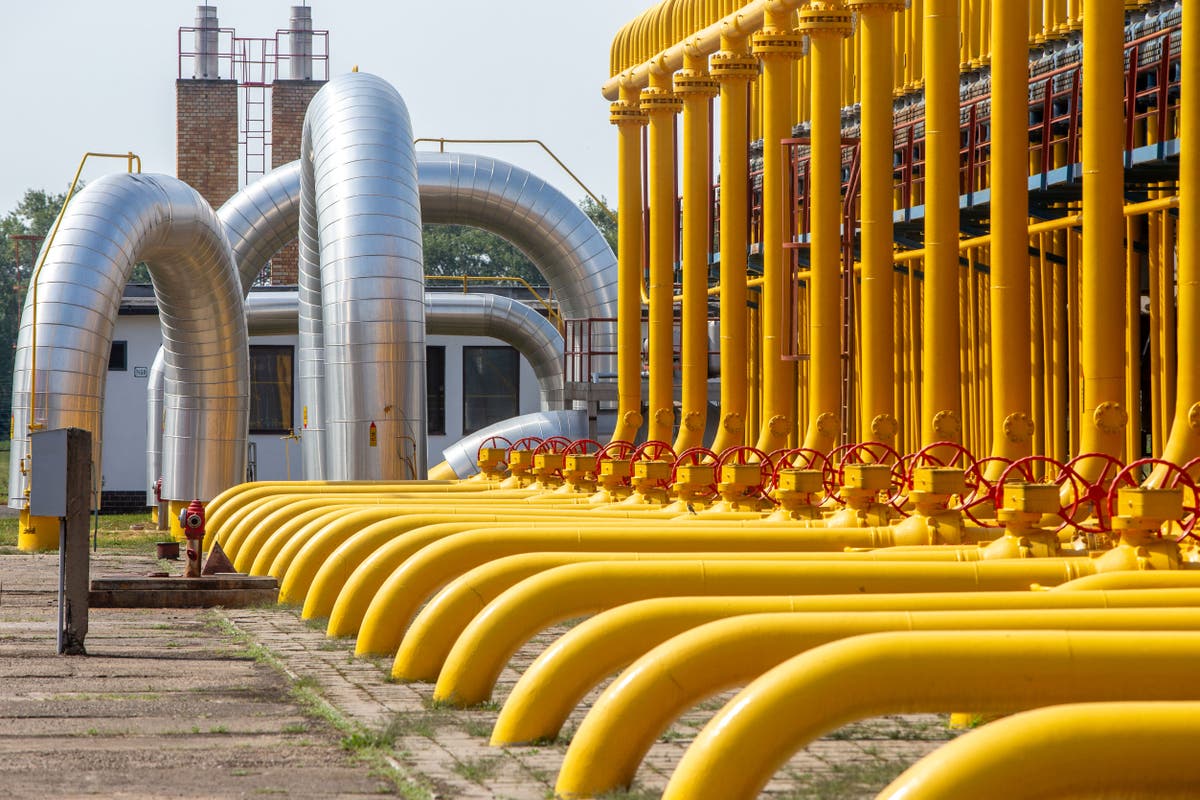The first day of the new year came with bad tidings for energy consumers, both in Britain and across Europe. Here, the cap set by the regulator, Ofgem, for the price of domestic gas has been raised for the second time this winter. On the other side of Europe, Ukraine ended the transit of Russian gas across its territory, forcing several EU countries to turn to imports of more expensive liquefied natural gas.
Together, these measures mean that for many millions of users the price of gas will be going up – again.
Ukraine’s decision not to renew transit arrangements that have been in place since 1991, effectively brings to an end an era of relatively cheap Russian gas for Europe – and not before time.
Indeed, it almost beggars belief that, nearly three years after Russia’s full-scale invasion of Ukraine, Russian gas was still being piped to several EU countries, including Austria and Slovakia, and that – despite all the sanctions imposed by Ukraine’s allies with a view to harming the Russian economy – pre-war contracts were being honoured on all sides as though nothing had happened.
There are reasons, of course, why it took so long. Slovakia and others needed the gas and needed time to make alternative provision – which has been done, largely thanks to the EU. Russia, for its part, might have halted supplies but chose not to, partly in its own financial interests, partly in the interests of preserving its reputation as a reliable supplier, and no doubt partly in the hope of trying to split the EU over its support for Ukraine. It was also in Ukraine’s interests, as the recipient of transit payments, not to end the latest five-year contract ahead of time.
That the gas was still flowing into the EU until the early morning of 1st January 2025, nonetheless, risked undermining the European Union’s generally solid support for Ukraine, as it seemed to send mixed messages at the very least.
The process of severing the EU’s energy ties with Russia had begun only days after Russia’s invasion when German chancellor Olaf Scholz announced that his country was ending its decades-long reliance on Russian gas. It had been accelerated by the sabotage of the Nord Stream pipelines seven months later. But still, barely remarked upon, the gas flowed across war-ravaged Ukraine.
That mixed messaging is now over. Some Russian gas may still reach Hungary – as well as Turkey and Serbia, both outside the EU – via the TurkStream pipeline, and some EU countries are buying some Russian gas in the form of liquefied natural gas (LNG). But the amount is sharply reduced. And that is the right direction for the EU to be taking.
It is right for the EU to be buying its energy elsewhere, even if the speed of the transition up-ended the German economy – with the coming early election as a by-product. And it is right, even if the erstwhile EU recipients of the Russian gas that flowed through Ukraine now face higher costs, either through new reverse switching operations from the EU or from more expensive LNG bought mainly from the United States or the Gulf.
But the words of a certain former UK prime minister (Boris Johnson), in light of the global price rises prompted by the Russian invasion, remain true: “If we’re paying in our energy bills for the evils of Vladimir Putin, the people of Ukraine are paying in their blood.”
Doing the right thing by Ukraine does not mean that more efforts should not be made by governments and energy companies to rein in price rises as much as possible, and to protect those consumers most at risk. Different EU countries have introduced different measures, with the UK being among the least generous, not to say politically unwise in the way it summarily stopped the winter fuel payment for most pensioners. The EU should also do what it can to help Moldova, which is not in the EU and has no alternative supply.
Regrettably, it is clear that another price spiral looms. The ending of the gas transit across Ukraine triggered an immediate rise in global market prices, which will have a knock-on effect on consumer prices everywhere – and doubtless, in time, on the energy cap in the UK.
Continuing price rises, what is more, could encourage European consumers to blame not Russia, but their governments’ continuing support for Ukraine. It is an argument that finds favour in Hungary and Slovakia and is likely to be heard from the opposition on the far left and far right during Germany’s election campaign.
This must not be the last word, however. Russia may have found other markets for its gas, specifically in China, but re-orientating its distribution and negotiating new terms comes with its own costs: its once-mighty energy conglomerate, Gazprom, last year recorded its first loss for more than 20 years.
Nor is the EU likely to resume its energy relations with Moscow, much though it would appear that Russia, and some of its old customers, would like to see the pipelines reactivated once the Ukraine war is over.
It is a happy coincidence that business, security and ethical considerations all converge to make Europe moving to end its reliance on Russian gas quite simply the right thing to do.

